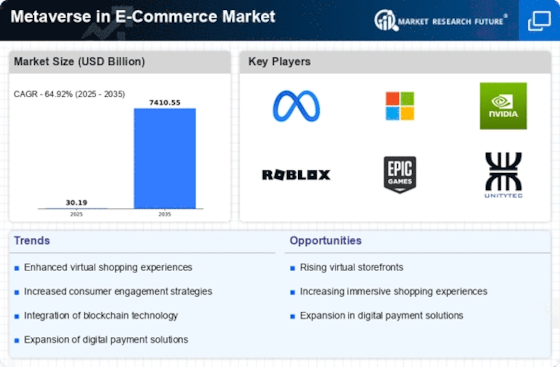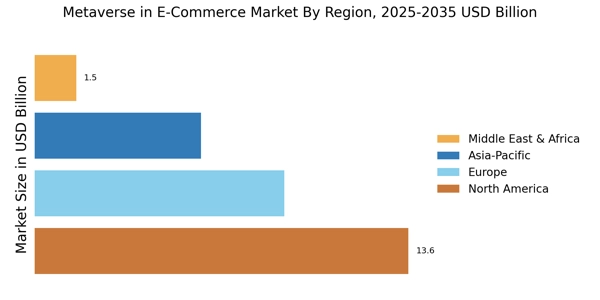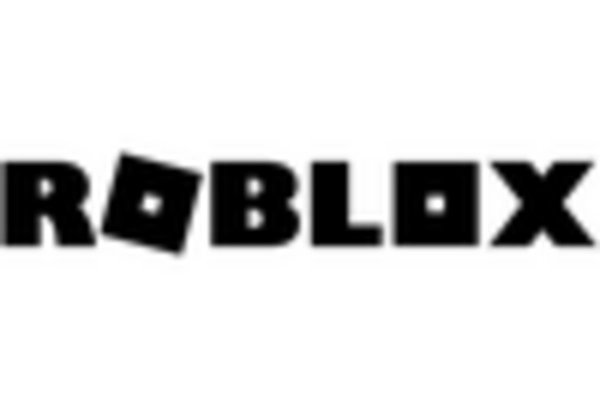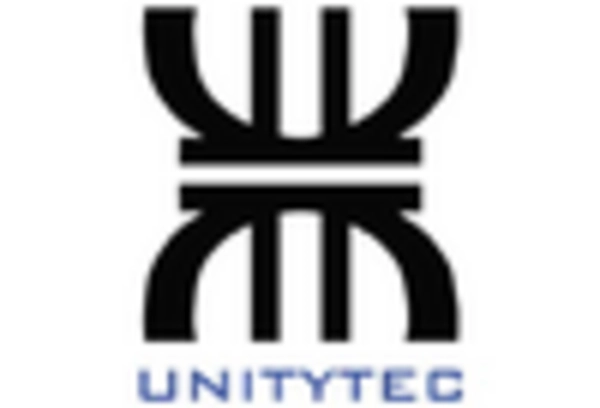Immersive Shopping Experiences
The Metaverse in E-Commerce Market is witnessing a surge in immersive shopping experiences, which allow consumers to engage with products in a virtual environment. This trend is driven by advancements in virtual reality (VR) and augmented reality (AR) technologies, enabling retailers to create lifelike simulations of their products. According to recent data, the VR and AR market is projected to reach a valuation of over 300 billion dollars by 2025, indicating a robust growth trajectory. Retailers are increasingly adopting these technologies to enhance customer engagement and satisfaction, as immersive experiences can lead to higher conversion rates. As consumers become more accustomed to these virtual environments, the expectation for immersive shopping experiences is likely to grow, further propelling the Metaverse in E-Commerce Market forward.
Integration of Social Commerce
The integration of social commerce within the Metaverse in E-Commerce Market is reshaping how consumers interact with brands. Social media platforms are increasingly incorporating shopping features, allowing users to purchase products directly through their feeds. This trend is supported by the fact that approximately 70% of consumers report discovering new products on social media. As brands establish a presence in the Metaverse, they are leveraging social commerce to create interactive and engaging shopping experiences. This integration not only enhances brand visibility but also fosters community engagement, as consumers can share their experiences and recommendations within the virtual space. The potential for social commerce to drive sales in the Metaverse is substantial, suggesting a transformative impact on the E-Commerce landscape.
Expansion of Virtual Marketplaces
The expansion of virtual marketplaces is a pivotal driver in the Metaverse in E-Commerce Market. As more brands establish their presence in virtual environments, the number of digital storefronts is rapidly increasing. This trend is evidenced by the fact that the virtual goods market is expected to surpass 100 billion dollars by 2025. Virtual marketplaces offer unique opportunities for brands to reach consumers in innovative ways, allowing for interactive product displays and immersive shopping experiences. Additionally, these marketplaces facilitate global reach, enabling brands to connect with consumers across various demographics and regions. The growth of virtual marketplaces is likely to redefine traditional retail models, positioning the Metaverse as a central hub for E-Commerce.
Personalization through Data Analytics
Personalization is becoming a cornerstone of the Metaverse in E-Commerce Market, driven by advancements in data analytics. Retailers are increasingly utilizing consumer data to tailor shopping experiences, offering personalized recommendations and targeted marketing strategies. This approach is supported by findings that indicate personalized experiences can lead to a 20% increase in sales. As consumers navigate the Metaverse, their preferences and behaviors are tracked, allowing for real-time adjustments to product offerings. This level of personalization not only enhances customer satisfaction but also fosters brand loyalty, as consumers are more likely to return to brands that understand their needs. The emphasis on data-driven personalization is likely to shape the future of the Metaverse in E-Commerce Market.
Technological Advancements in Payment Solutions
Technological advancements in payment solutions are significantly influencing the Metaverse in E-Commerce Market. The rise of cryptocurrencies and blockchain technology is facilitating secure and efficient transactions within virtual environments. As consumers become more comfortable with digital currencies, the demand for seamless payment solutions is likely to increase. Recent data suggests that the cryptocurrency market could reach a valuation of 1 trillion dollars by 2025, indicating a growing acceptance of these payment methods. Retailers in the Metaverse are adopting innovative payment solutions to enhance the shopping experience, allowing for instant transactions and reduced friction. This evolution in payment technology is expected to play a crucial role in the growth and sustainability of the Metaverse in E-Commerce Market.

















